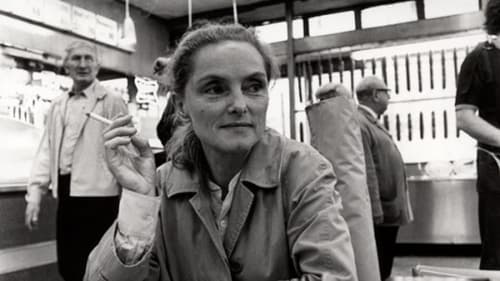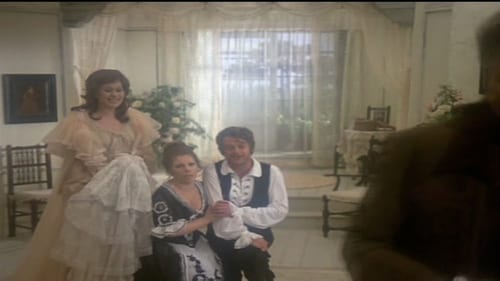Hans Kraemmer
Nacimiento : 1934-10-24, Wien, Austria

Sir Georg Solti leads the Wiener Philharmoniker in this intimate film of Strauss's comedy of manners. Using traditional sets and costumes, this is the only film version available of this opera. A talented cast includes Gundula Janowitz, Edita Gruberova, Bernd Weikl and Rene Kollo.

After the passing of her husband, the commissioned painter Anneliese Psiko decides to travel across the country. In the Austrian province of Styria, she discovers a strange work of art entitled "Weltmaschine" (World Machine). From now on, it will change her life significantly.

friend
Viennese vegetable merchant Karl Kassbach becomes a member of a right-wing extremist organization, which plans numerous attacks on democratic institutions and journalists.
The film attempts to portray a realistic and detail-oriented study of the mind of the "Kleinbürger", trapped between the fringes of the lower and middle-classes.

Gotthelf
Fanny Hobichler, a young promising actress, moves to Vienna in the 1920s in order to pursue her big break. She draws inspiration and seeks help from the popular stage actor Albert Kortz who once started out from the same provincial town as she did and was a close friend of her late father. Kortz, however, dreams of retiring as he is tired of his fame and having to deal with the short-tempered theatre director Jason. Together, they try to outwit Jason.

Agamenon

Conte Carnero
In the Temesvar Province, a landowner returned from exile marries a gypsy girl who is revealed to be the daughter of a Turkish Pasha and the rightful owner of a hidden treasure. Next to "Die Fledermaus", DER ZIGEUNERBARON is Johann Strauss’s most popular operetta. The libretto gave Strauss the chance to revel in such contrasting musical forms as the Csárdás and the Viennese waltz. The style of the lied forms and ensembles is so original and finely balanced that the "Gypsy Baron" can truly be called a comic opera. Among the leading names of the stellar cast in this exuberant 1975 film of the operetta are Wolfgang Brendel, Ivan Rebroff, Janet Perry, Ellen Shade, Martha Mödl and, in the role that launched his career, Siegfried Jerusalem as Sándor Barinkay.

Antonio
Mozart's Marriage of Figaro is a comedy whose dark undertones explore the blurred boundaries between dying feudalism and emerging Enlightenment. Herman Prey's Figaro is admirably sung in a firm baritone and aptly characterized. So too, is his antagonist, Dietrich Fischer-Dieskau as the Count perpetually frustrated by the scheming wiles of Figaro and Susanna, here the perky Mirella Freni, who sings and acts like a dream. The Countess is creamy-voiced Kiri Te Kanawa, and the Cherubino, Maria Ewing, looks just like the horny, teenaged page she's supposed to be. The all-star leads are complemented by worthy supporting singers, the Vienna Philharmonic at the top of its form, and the experienced Mozartian, Karl Böhm conducting a stylishly fleet performance.

Ambrogio
Count Almaviva is in love with Rosina. However, she is currently staying with Dr. Bartolo – who desires to marry her. By using a series of disguises, Almaviva manages to pass letters to Rosina and serenade her with his beautiful voice. Dr. Bartolo does his best to stop Almaviva but is constantly thwarted. In the end, Count Almaviva marries Rosina and Dr. Bartolo comes to terms with his defeat.






